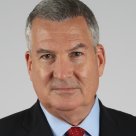After a weekend of campaigning for African votes to get Canada elected to the United Nations Security Council, Canadian officials are feeling a bit more upbeat about the prospect that Canada just might edge out Norway and Ireland for the two vacant spots on the council.

They concede the campaign may yet fail, but if Canada loses, there will be no weeping and gnashing of teeth on the Canadian side. The campaigners — Canada’s diplomats at the United Nations in New York City and in embassies and missions abroad — truly are happy warriors and are already seeing their work yield benefits that, in their view, will improve Canada’s place in the world.
Over the course of the campaign, new relationships have been established and dormant ones rekindled with countries not just in Africa but also in other regions of the world, such as central Asia, that have long had little favour or attention from Canada’s foreign policy establishment.
“Over the past year, we’ve demonstrated as a country that we are engaged in serious multilateral institutions and solving challenges around the world,” Prime Minister Justin Trudeau said Sunday when asked if the long — and expensive — bid for the Security Council seat was worth it. Trudeau pointed to his government’s initiatives to raise billions to fight diseases like malaria and AIDS and the establishment of the so-called oceans charter that includes banning plastics.
“The Security Council seat is a means to continue to do that. But there are many different ways that we’re focused on doing that.”

Much is made back in Canada — and, not surprisingly, by Canada’s rivals for the Security Council seat — that Canada is not a very generous aid donor. Canada’s rivals paint it as a wealthy country with a miserly outlook, giving just a pittance of its national wealth to help those around the world who are less fortunate. Canada’s foreign aid budget amounts to about $6 billion a year out of an overall government budget of about $350 billion. Relative to the size of its national economy, Canada spends 0.28 per cent on its overseas development assistance. By contrast, Norway spends fully one per cent of its GDP on overseas development assistance.
But senior Canadian diplomats in Africa say they’ve heard no complaints from their African hosts about Canada’s aid levels. (About half of Canada’s foreign aid budget goes to projects in countries in sub-Saharan Africa.) Instead, the diplomats say African leaders wanted to talk about Canada’s work on so-called “innovative financing,” finding the money from public- and private-sector sources for the infrastructure investments urgently needed in the developing world.
- What is a halal mortgage? How interest-free home financing works in Canada
- Ontario doctors offer solutions to help address shortage of family physicians
- Capital gains changes are ‘really fair,’ Freeland says, as doctors cry foul
- Montreal UN aviation workers busted in China-Libya drone sale conspiracy
China has understood this and, through its Belt and Road Initiative and the China-sponsored Asian Infrastructure Investment Bank, has been backing, sponsoring or building all sorts of infrastructure projects, from ports to roads to hydroelectric dams, throughout Asia and Africa. And in doing, so China is extending its influence in the world.
“Meanwhile, the West is sleeping on this,” one senior diplomat said as the weekend in Addis Ababa, Ethiopia wrapped up.
One of the problems for the West, according to African leaders and academics, is that too often Canada and others see Africa only in the context of humanitarian aid and peacekeeping. But African leaders want to talk about much more than that: they want to talk about business investment, opening up new trade routes and establishing new education and cultural ties.

On that front, one of the smartest things the Trudeau delegation may have done this weekend is convince Toronto Raptors president Masai Ujiri to essentially be Trudeau’s wingman. Though Ujiri was born in England, his family moved to Nigeria before he was a year old, and that was where he grew up.
“I consider myself a Canadian citizen. I am a Canadian citizen. But I am also a son of Africa,” he said Sunday. “I support Canada and I support the prime minister in what he wants to do here and, obviously, I have relationships with leaders here, and any way I can help, it’s a big part of making the world better.”
Ujiri is frequently in Africa for work his Giants of Africa foundation. And, of course, his basketball team — the reigning NBA champions — has some star African players on it, including all-star Pascal Siakam of Cameroon, Serge Ibaka of Congo and OG Anunoby who, like Ujiri, has Nigerian roots.
Throughout the weekend, Ujiri helped open doors with African leaders and get the conversation started. Canada’s diplomats smartly and enthusiastically took it from there.
The diplomats will know how they did when the votes are cast at UN headquarters in New York City on June 17.
David Akin is chief political correspondent for Global News.




Comments